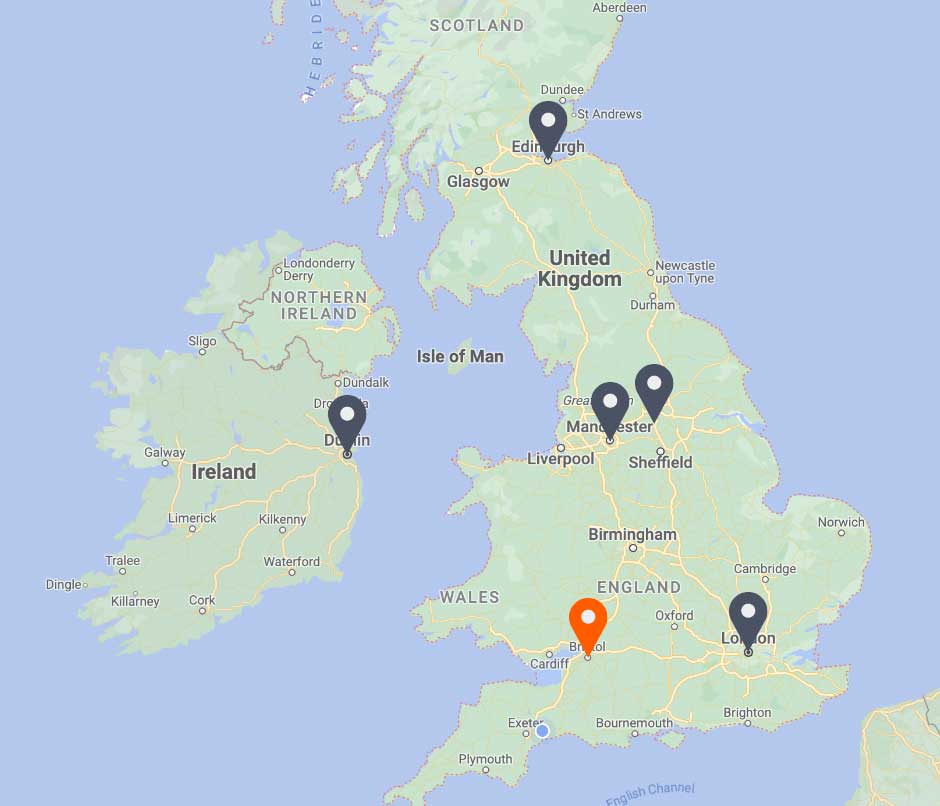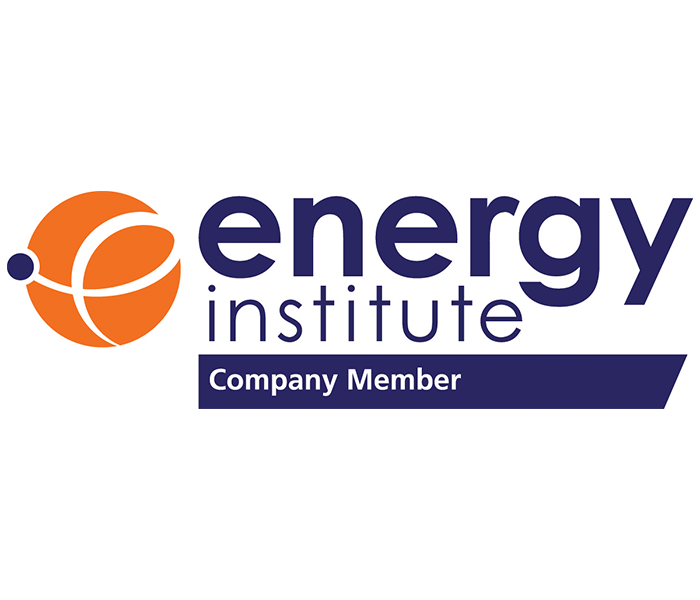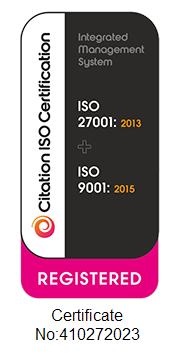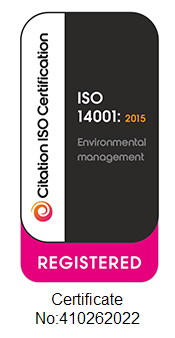THIS ARTICLE AT A GLANCE
CONTACT ETS
If you have any questions or would like to discuss further what you should be doing, ETS is here and willing to help.
Call 0117 205 0542
Email enquiries@energy-ts.com
Submit a contact form
CHECK OUR SERVICES
Modern Challenges for Facilities Management

In recent years, we have seen significant shifts in how companies approach facilities management. There has been a broad transition towards data-led strategies, reflecting how businesses have access to more data sources than ever before. Because of this, companies can be predictive rather than reactive, able to spot negative trends ahead of time rather than combating problems after they arise.
Another key transition is towards automation. Smart buildings are quickly becoming the norm, allowing businesses to harness data quicker and with a greater sense of accuracy. As there is less reliance on manual processes, facilities management providers can reduce costs – both in terms of money and time.
However, some may see drawbacks in these new advancements. Despite removing older challenges, it can be argued that they replace them with new, modern challenges for facilities management providers. Perhaps the most pressing of these is the rate of which these transitions are taking place; if companies are slow to adapt, they are likely to be left behind by competitors. It is more important than ever for facilities managers to stay on top of the latest trends.
What is the future of facilities management?
As mentioned, facilities management is an area that is changing rapidly, leading to new challenges and opportunities. Key to this is a greater level of granularity and customisation. In the past, a company across their estate would have been provided with generic solutions to issues such as energy conservation. Now, there is room to develop more tailored ones, designed to suit a business’s specific needs. There is a greater awareness that there is no one-size-fits-all solution in facilities management, with companies ranging vastly when it comes to size and sectors covered.
The greater level of data granularity also allows for a higher level of transparency. This is great for both facilities management providers and their clients, giving them the ability to see how well a solution is working in real-time and identify problem areas quickly. Additionally, it allows progress to be tracked over time more easily and for data to be split in multiple ways. This means that however a business measures success, they will able to view their data in that manner.
Another future trend when it comes to facilities management is the sheer number of data points. New factors such as internal comfort conditions and provisions of fresh air can now be tracked, giving businesses a greater understanding of how their building works out how it affects employees. In short, facilities management is moving towards granting companies with more data and more ways to assess it, leading to many benefits.
What are the main benefits of this shift?
The key benefits of this transition in facilities management are clear: companies will be able to achieve more in less time and with lower costs. The increased granularity of data allows problems to be identified quicker and at times predicted before they occur. This predictivity means that organisations can plan more effectively and reduce downtime and unexpected costs.
The increased reliance on automation is also likely to reduce costs as well. Facilities management providers are able to provide businesses with solutions that are not only much more effective, but also cheaper to implement. Providers can access data streams and alter settings remotely through a range of different smart devices, making the process much quicker and easier. These savings are then passed on to clients, allowing both groups to reap the benefits of this shift in facilities management.
What steps should businesses take?
Companies need to take the increasing shift towards smart buildings and automation seriously. Facilities management is an area that has changed significantly over the past few years, and it is set to change even more in the years to come. There is a sea change coming in how buildings operate and what clients expect from their facilities management providers, and so it is essential to stay ahead of the curve.
ETS support companies of all sectors and scales and have the engineering skills to provide effective and modern facilities management solutions. There is no one-size-fits-all when it comes to facilities management and so it is essential to collaborate with a company that can provide you with a solution tailored to your company’s specific needs.
Final thoughts
If you are looking for an energy management system that is tailored to your business needs, ETS can provide you with 25 years of experience in dramatically improving energy efficiency and reducing environmental impacts. Whether your businesses have individual assets or large international portfolios, ETS can assist you in saving substantial amounts of money while significantly reducing your carbon performance.
To discuss your requirements, get in touch. You can contact us by calling 0117 205 0542 or drop us an email at enquiries@energy-ts.com.
In recent years, we have seen significant shifts in how companies approach facilities management. There has been a broad transition towards data-led strategies, reflecting how businesses have access to more data sources than ever before. Because of this, companies can be predictive rather than reactive, able to spot negative trends ahead of time rather than combating problems after they arise.
Another key transition is towards automation. Smart buildings are quickly becoming the norm, allowing businesses to harness data quicker and with a greater sense of accuracy. As there is less reliance on manual processes, facilities management providers can reduce costs – both in terms of money and time.
However, some may see drawbacks in these new advancements. Despite removing older challenges, it can be argued that they replace them with new, modern challenges for facilities management providers. Perhaps the most pressing of these is the rate of which these transitions are taking place; if companies are slow to adapt, they are likely to be left behind by competitors. It is more important than ever for facilities managers to stay on top of the latest trends.
What is the future of facilities management?
As mentioned, facilities management is an area that is changing rapidly, leading to new challenges and opportunities. Key to this is a greater level of granularity and customisation. In the past, a company across their estate would have been provided with generic solutions to issues such as energy conservation. Now, there is room to develop more tailored ones, designed to suit a business’s specific needs. There is a greater awareness that there is no one-size-fits-all solution in facilities management, with companies ranging vastly when it comes to size and sectors covered.
The greater level of data granularity also allows for a higher level of transparency. This is great for both facilities management providers and their clients, giving them the ability to see how well a solution is working in real-time and identify problem areas quickly. Additionally, it allows progress to be tracked over time more easily and for data to be split in multiple ways. This means that however a business measures success, they will able to view their data in that manner.
Another future trend when it comes to facilities management is the sheer number of data points. New factors such as internal comfort conditions and provisions of fresh air can now be tracked, giving businesses a greater understanding of how their building works out how it affects employees. In short, facilities management is moving towards granting companies with more data and more ways to assess it, leading to many benefits.
What are the main benefits of this shift?
The key benefits of this transition in facilities management are clear: companies will be able to achieve more in less time and with lower costs. The increased granularity of data allows problems to be identified quicker and at times predicted before they occur. This predictivity means that organisations can plan more effectively and reduce downtime and unexpected costs.
The increased reliance on automation is also likely to reduce costs as well. Facilities management providers are able to provide businesses with solutions that are not only much more effective, but also cheaper to implement. Providers can access data streams and alter settings remotely through a range of different smart devices, making the process much quicker and easier. These savings are then passed on to clients, allowing both groups to reap the benefits of this shift in facilities management.
What steps should businesses take?
Companies need to take the increasing shift towards smart buildings and automation seriously. Facilities management is an area that has changed significantly over the past few years, and it is set to change even more in the years to come. There is a sea change coming in how buildings operate and what clients expect from their facilities management providers, and so it is essential to stay ahead of the curve.
ETS support companies of all sectors and scales and have the engineering skills to provide effective and modern facilities management solutions. There is no one-size-fits-all when it comes to facilities management and so it is essential to collaborate with a company that can provide you with a solution tailored to your company’s specific needs.
Questions about energy management technology?
If you have any questions regarding the energy needs of your business, our expert team at ETS are always here to help. You can contact us by calling 0117 205 0542, emailing us at enquiries@energy-ts.com or you can submit a contact form.
Related Article
8 Ways Businesses Can Reduce Energy Use in the Workplace This Winter
Discover how to comply with ESOS Phase 4 and unlock energy-saving opportunities for your business. This guide explains the requirements, highlights key deadlines, and provides actionable strategies. Learn how energy audits, tailored action plans, and expert support can reduce costs, improve efficiency, and align your organisation with sustainability goals.
ESOS Action Planning: Complying with Phase 4 and Implementing Energy Saving Strategies
Discover how to comply with ESOS Phase 4 and unlock energy-saving opportunities for your business. This guide explains the requirements, highlights key deadlines, and provides actionable strategies. Learn how energy audits, tailored action plans, and expert support can reduce costs, improve efficiency, and align your organisation with sustainability goals.
Important Update: What You Need to Know about ESOS Phase 3
Time is ticking for the ESOS Phase 3 deadline. The Environment Agency announced that the reporting system is available now. For organisations qualifying for ESOS Phase 3, the deadline for submitting a compliance notification is 5 June 2024, and organisations should still look to meet this compliance notification deadline where possible.










































































